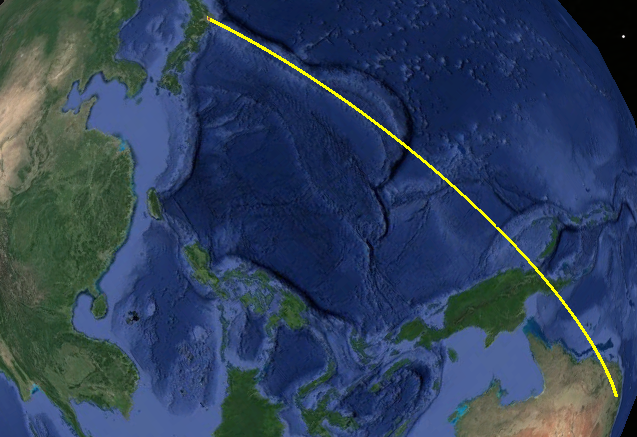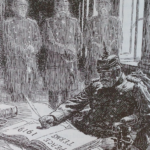
Healing the Wounds of War: a Spiritual Axis
 After World War 2 the world was in ruins. The nations that fought against each other in that war were the last people who you would think would naturally cooperate with each other in a common cause. In Australia, when I was growing up, there was still (if fading) a lingering collective memory among some of the Japanese as a hated and feared enemy, even though nowadays there is warm friendship between the two countries and peoples.
After World War 2 the world was in ruins. The nations that fought against each other in that war were the last people who you would think would naturally cooperate with each other in a common cause. In Australia, when I was growing up, there was still (if fading) a lingering collective memory among some of the Japanese as a hated and feared enemy, even though nowadays there is warm friendship between the two countries and peoples.
Shoghi Effendi, who led the Baha’i community in this dark period of war, and in the subsequent decades, did not think like this. Where others saw enmity he saw connections.
Thus he framed a bond between the Baha’is of Japan and Australia. The “axis powers” refers of course in general history to the powers fighting against the “allies”. Shoghi Effendi transformed this “axis” into a spiritual axis – not of enmity and war – but of friendship and cooperation. He framed a spiritual axis joining together the people of Australia and Japan together: peoples who had fought so desperately against each other in the war. He set down the concept in one of his last messages to the Baha’is of Australia.
A responsibility, at once weighty and inescapable, must rest on the communities which occupy so privileged a position in so vast and turbulent an area of the globe.
He reflected on the differences of “race, language, custom and religion” and the existence of political forces tending “to keep them apart and foster racial and political antagonisms”. Yet he called for the “close and continued association” of these two communities in their shared work as Baha’is. And he urged them to consider their continued cooperation a matter of “vital and urgent importance”.
The spiritual axis was called to mind in 1982 at an international conference of the Baha’i Faith held in Canberra. It was raised again by the Universal House of Justice in a message to the Baha’i communities of the Pacific region on the 21 April 1996.
Japan and Australia were not the only wartime antagonists Shoghi Effendi linked in this way. In 1953, he gave the people of Germany the responsibility of teaching the Baha’i Faith to Russia and its neighbouring countries.
They that are endued with sincerity and faithfulness should associate with all the peoples and kindreds of the earth with joy and radiance, inasmuch as consorting with people hath promoted and will continue to promote unity and concord, which in turn are conducive to the maintenance of order in the world and to the regeneration of nations. Blessed are such as hold fast to the cord of kindliness and tender mercy and are free from animosity and hatred.[1] Bahá’u’lláh
References: Messages to the Antipodes: Communications from Shoghi Effendi to the Baha’i Communities of Australasia, editor, Graham Hassall, p442
Image: Screenshot taken using Google Earth Pro
(This article is the 123rd in a series of what I hope will be 200 articles in 200 days for the 200th anniversary of the birth of Bahá’u’lláh. The anniversary is being celebrated around the world on 21 and 22 October 2017, The articles are simply my personal reflections on Bahá’u’lláh’s life and work. Any errors or inadequacies in these articles are solely my responsibility.)







